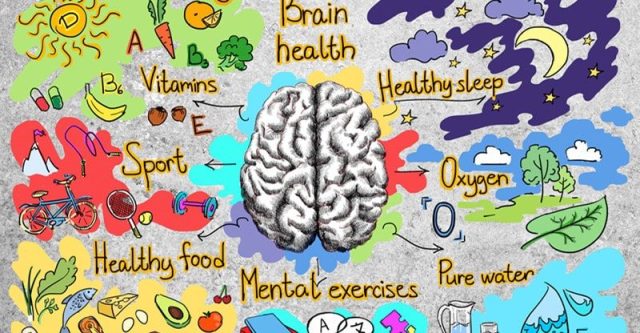How to Keep Your Brain Healthy
Your brain controls everything your body does, so keeping it healthy is key to your overall well-being. Unfortunately, many people ignore early warning signs or follow unhealthy habits, which can lead to serious problems over time.
Why Brain Health Matters
- Poor diets (like fast food and processed snacks high in salt and unhealthy fats) can lead to obesity and damage blood vessels in the brain.
- A healthy lifestyle and good nutrition can lower the risk of memory loss and chronic diseases.
Below are some practical ways to protect and improve your brain health.
1. Take Care of Your Blood Vessels
High blood pressure affects nearly half of American adults and increases the risk of stroke and dementia. Other factors like high cholesterol, smoking, diabetes, and lack of exercise can also clog arteries.
Why this matters:
- Clogged arteries reduce blood flow to the brain, raising stroke risk.
- Plaque buildup can cause aneurysms (weak spots in blood vessels) that may burst.
- Strokes can lead to paralysis, speech problems, memory loss, or even death.
What you can do:
- Monitor blood pressure and cholesterol.
- Eat a low-salt, low-cholesterol diet.
- Stay active and follow your doctor’s advice.
2. Know the Warning Signs
Brain conditions often start with subtle symptoms. Catching them early improves treatment success.
Watch for:
- Severe headaches
- Seizures
- Blurry vision
- Trouble walking or speaking
- Memory loss or confusion
If you notice these signs—in yourself or someone else—see a doctor right away.
3. Eat Brain-Friendly Foods
The Mediterranean diet is one of the best for brain health. It’s linked to lower risks of Alzheimer’s and memory loss.
How to follow it:
- Load up on fruits, vegetables, and whole grains.
- Eat nuts, beans, and fish regularly.
- Use olive oil instead of butter or processed oils.
- Limit sugar, red meat, and processed foods.
Bonus tip: A “Green Med” diet (with walnuts, green tea, and polyphenol-rich foods) may protect against brain shrinkage.
Avoid: Too much sugar—it’s tied to diabetes, heart disease, and memory problems.
4. Move Your Body
- Aim for 150 minutes of moderate exercise (like walking) or 75 minutes of intense exercise weekly.
- Small activities (dancing, short walks) also help.
5. Stay Social
Loneliness can harm your brain as much as smoking or obesity.
- Connect with friends and family.
- Join clubs or volunteer.
6. Challenge Your Mind
Keep your brain sharp with:
- Puzzles, reading, or learning new skills.
- Brain-training apps or games.
7. Avoid Smoking and Heavy Drinking
- Smoking shrinks the brain and raises dementia risk.
- Excessive alcohol damages memory and thinking skills.
8. Manage Stress and Sleep Well
- Chronic stress harms memory and focus.
- Aim for 7–8 hours of sleep nightly.
- Try yoga, meditation, or deep breathing to relax.
9. Prevent Falls
Falls are a leading cause of brain injuries, especially in older adults.
- Remove tripping hazards at home.
- Wear supportive shoes.
Key Takeaways
- Eat well, exercise, and stay socially active.
- Avoid smoking, too much alcohol, and sugar.
- Watch for symptoms and get medical help early.




























